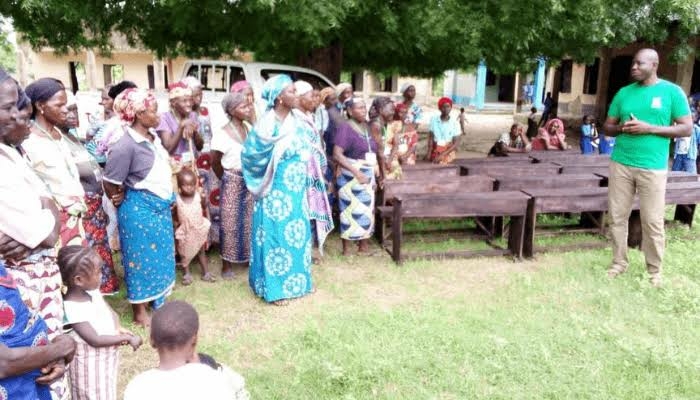Some beneficiaries of the Federal Government Conditional Cash Transfer programme in Kaduna State have described the support as a “life changer”, saying the initiative is improving the quality of lives of poor and vulnerable.
The beneficiaries gave the commendation in an interview with the News Agency of Nigeria (NAN) on Tuesday in Soba, Soba Local Government Area (LGA) of Kaduna State.
They that the programme has stabilised their means of livelihood.
The programme, also known as Household Uplifting Programme, supports poor and vulnerable households selected from the Social Register with N5,000 bi-monthly.
A beneficiary, Mrs Amina Lawal, a mother of five, said she was a living testimony of how the programme has transformed the lives of women and their households.
The 45-year-old woman, who lives on Sarkin Yaki Street in Soba, said that the programme has provided her with a stable means of income, adding that she now owned N280,000 worth of business.
“The cash transfer has enabled me to expand my fuel wood business to food items like palm oil, salt, and other seasoning.
“I have also ventured into selling textile materials which is bringing in more profit. This is a life changer for me and my household,” she said.
Also, Aba Abdullahi, a widow and mother of 13 children, said that the cash transfer programme supported her to establish a food item business with which she provides for her children.
“I now into selling food seasonings, spices, and others from which we feed and pay for our basic needs.
“In fact, my business is doing so well that I even took two of my little children to a private school,” she said.
Another beneficiary, Mrs Zainab Mohammed, described the programme as “a candle of hope”, after losing her job and her husband, followed by her mother who supported her when she lost all hope in life.
The 50-year-old widow and a mother of seven, told NAN that she was forcefully retired from the Local Government service about three years ago, losing her only source of income.
“I was trying to put myself together when my husband, the only breadwinner of the family became paralysed and later died. I moved in with my mother who also died of an ailment.
“I felt like the whole world was coming to an end for me, until I was enrolled as one of the beneficiaries of the cash transfer programme.
“This was the saving grace for me, and life has never been the same again,” she said.
She said that she used the amount to establish a business of making and selling air freshener and other locally made insecticide which she said was really flourishing with good returns.
On her part, Mrs Mariya Gimba, told NAN that the programme has significantly improved financial literacy among rural women.
According to her, women with no idea of how a banking system works now have bank accounts, courtesy of the cash transfer programme, following the introduction of e-payment system via automated teller machines
The Head of the Cash Transfer Unit, Hajiya Hauwa Abdulrazaq, explained that the programme was introduced in 2016 as one of the federal government’s social safety nets programmes.
Abdulrazaq said that the programme is designed to sustain households’ means of livelihood, financial and asset acquisition, improve households’ consumption, and increase access to health and nutrition services among others.
She said that a total of 70,051 households were benefiting from the programme across the 23 LGAs of the state, of which 1,914 beneficiaries were from Soba LGA.
One of the Cash Transfer Facilitators in the LGA, Mr Adamu Lawal, said that the beneficiaries were being supported on how to make the best use of the money through investments to sustain their means of income.
Lawal said that the support helped those with little businesses to sustain and expand while those without any form of business were able to establish one or two.

















Discussion about this post